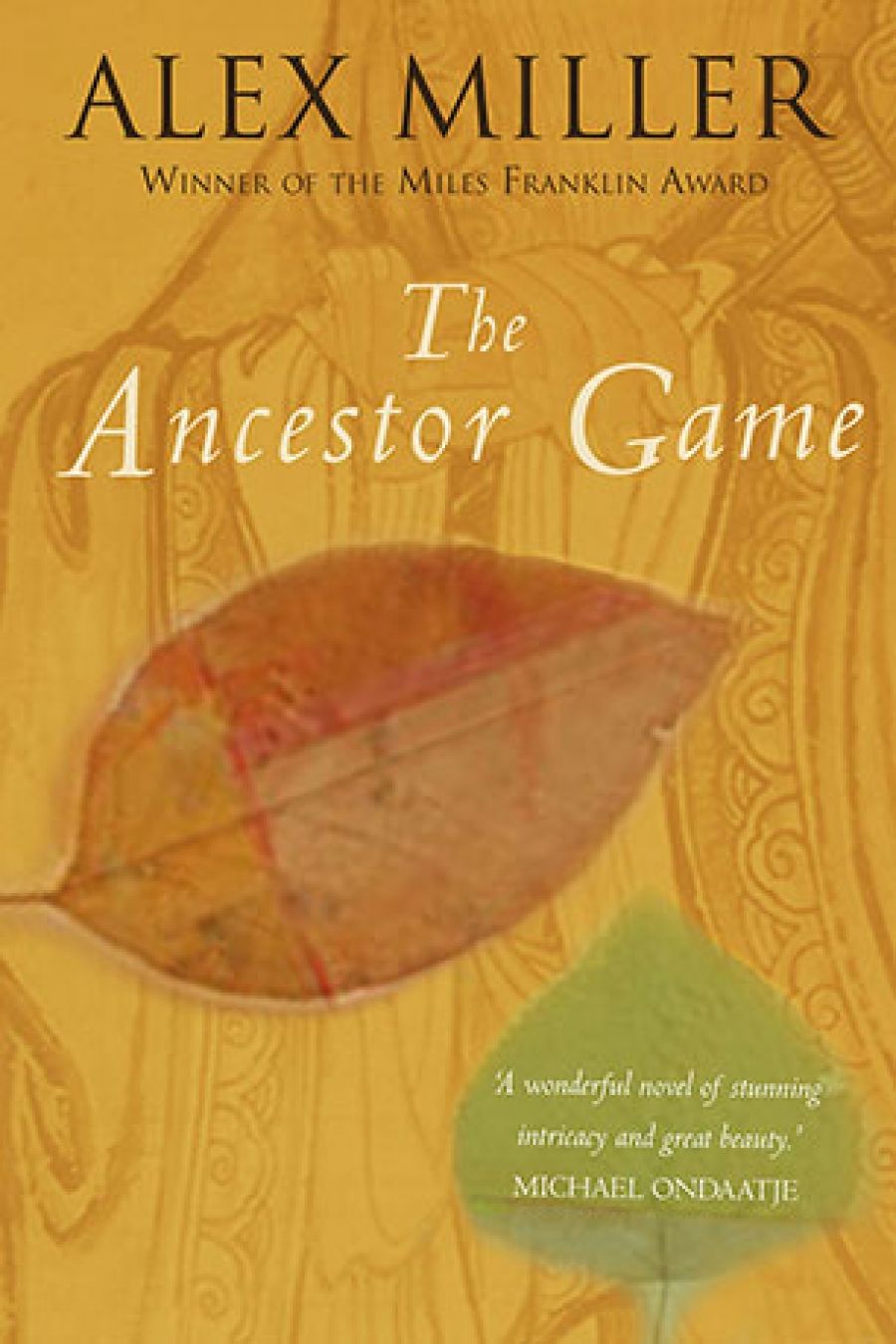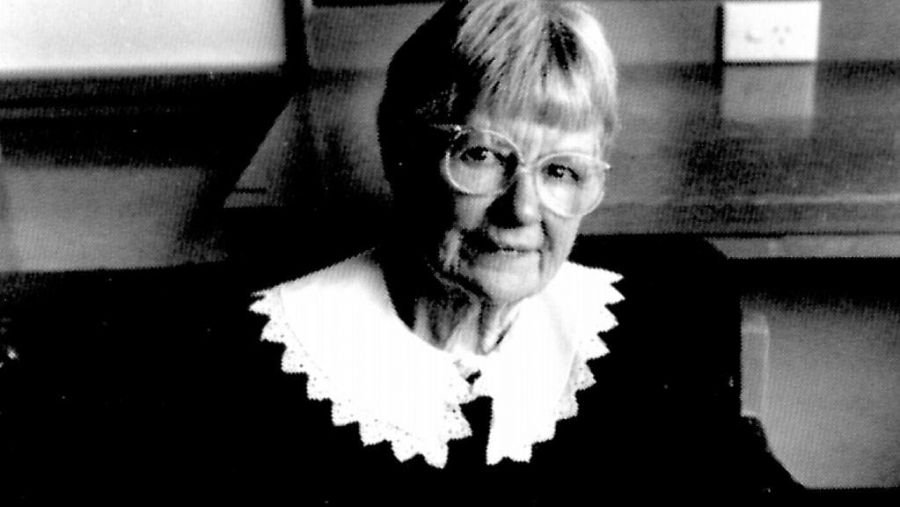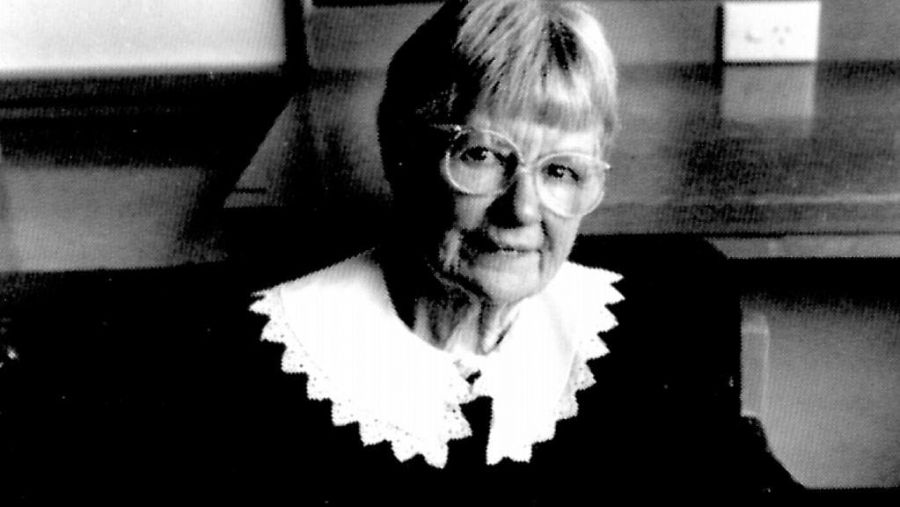
- Free Article: No
- Contents Category: Fiction
- Review Article: Yes
- Online Only: No
- Custom Highlight Text:
Alex Miller’s third novel treads some complex and difficult territory, staking out the past, memory, and the creation of self. It is also an incursion into the shadowy borderlands that lie between history and fiction, and the way in which, for every individual, the past has a different face ...
- Book 1 Title: The Ancestor Game
- Book 1 Biblio: Penguin, $14.95 pb, 0140159878
Alex Miller’s third novel treads some complex and difficult territory, staking out the past, memory, and the creation of self. It is also an incursion into the shadowy borderlands that lie between history and fiction, and the way in which, for every individual, the past has a different face. It is a very modern novel, in its rejection of the linear certitudes of an earlier age, and a very Australian one, too, in its ambivalence towards ancestry and individuality. In a most immediate way, ‘Australia’ is a created thing, a fiction shaped by nineteenth-century notions of the individual, in conflict with the more elemental notions of ancestry.
At the beginning of the novel, the author quotes Soren Kierkegaard: ‘Our age has lost all the substantial categories of family, state and race. It must leave the individual entirely to himself, so that in a stricter sense he becomes his own creator.’ Yet it is that lonely clarity of the individual which has come under attack in very recent times – what one might call the post-modern age – and the notions of ancestry, of the supernature of the past, in both their illuminating and destructive aspects, have rushed in to fill the gap. We no longer believe that the individual can actually ‘create himself’; we are as much shaped by our past, by our ancestors, as by our own actions or thoughts. Politically, this change, it seems to me, is expressed in such seemingly bewildering events as the break-up of Yugoslavia, and the dark forces at work within other parts of Europe, such as France’s National Front, where ancestry becomes the idol. Not ‘the end of history’, nor a return to ‘Middle Ages’ (a notion as constructed as history itself), but an inevitable change in a pattern which has never satisfied the most elemental of longings. We see this surfacing, too, in the environmental movement.
Artistically, this shift has resulted in many rich and complex works, in which the past, the present and the future are no longer seen as a linear progression but, rather, as a kind of giant tapestry where threads weave in and out.
Such is The Ancestor Game. It begins with Steven, a young Australian whose Irish mother now lives in England, and whose Scottish father has just died. On his return from England, Steven meets Gertrude Spiess and Lang Tzu. Both are Chinese Australians. In an ironic exchange at the beginning of the book, Lang says to Steven: ‘We’re all Australian, Steven. What are you really?’ This is ironic, too, because the Anglo-Celt is the one who usually feels entitled to ask that sort of question, not the obviously ‘different-looking’ one! The novel is full of these kinds of ironies, always reminding us that to trust to appearances is to put oneself into the most ridiculous of positions. Little by little, as Steven comes to know Gertrude and Lang, he also comes to know of their histories, of their ancestors, and he is soon following that trail, through journals, dreams, conversations, into the shadowlands of the past.
Read more: Sophie Masson reviews 'The Ancestor Game' by Alex Miller
Write comment (0 Comments)


